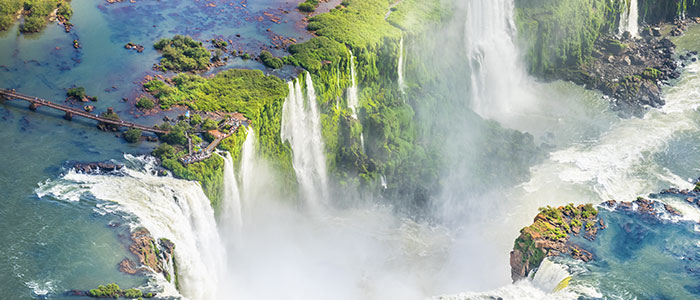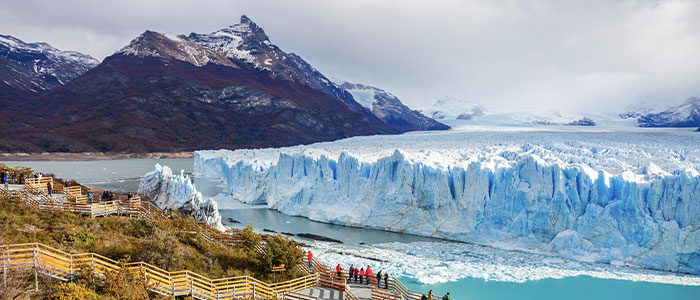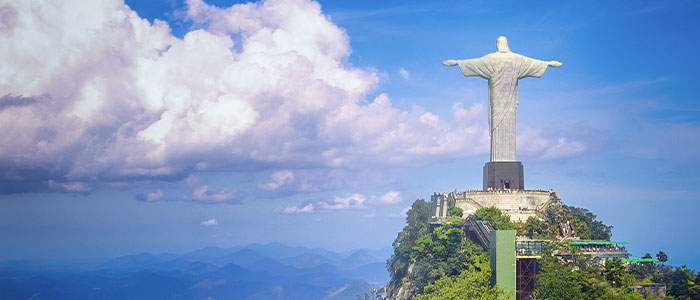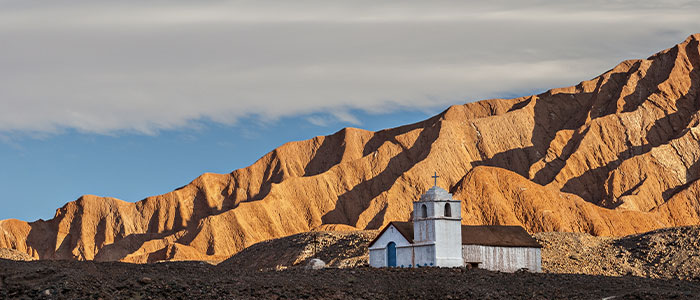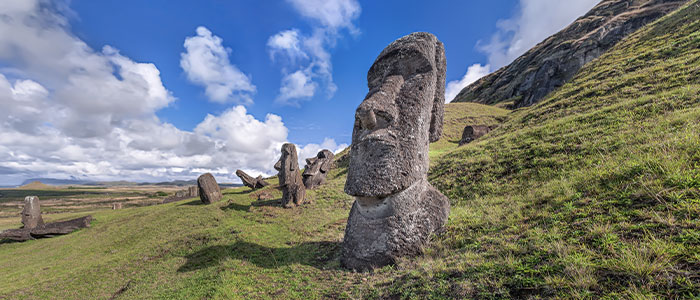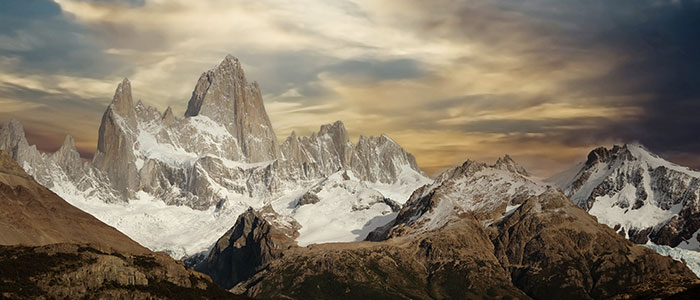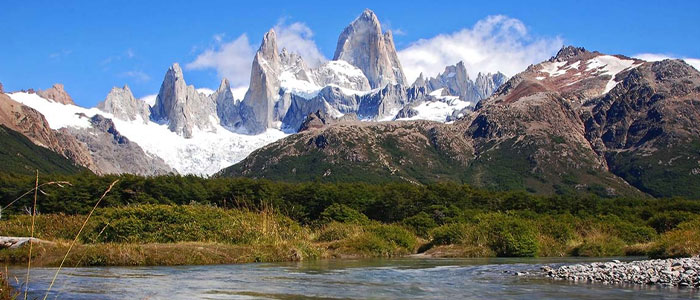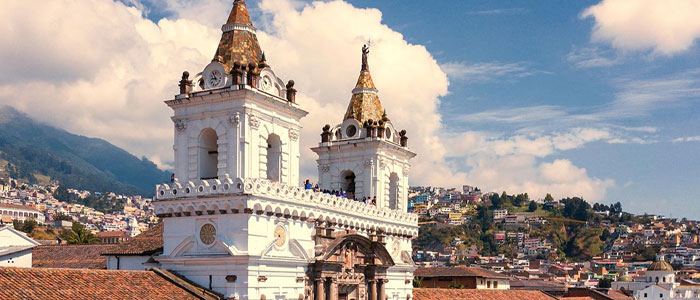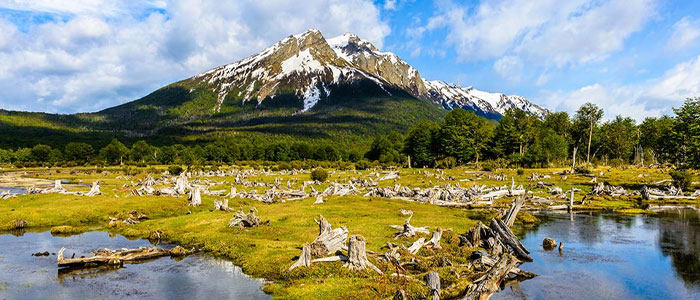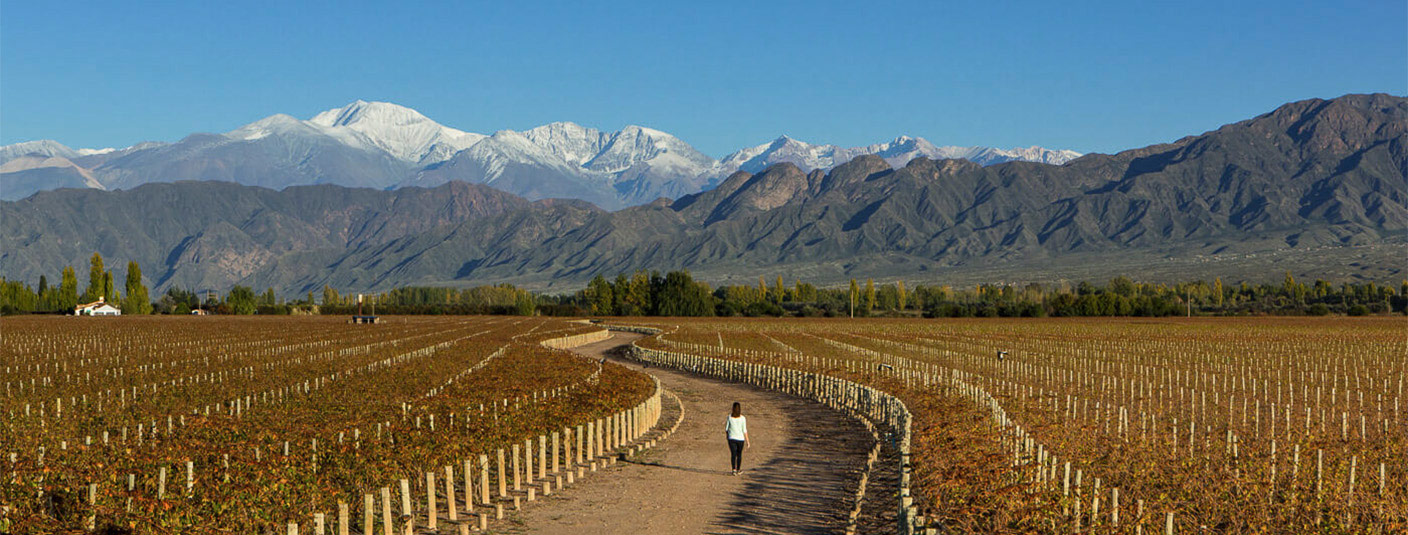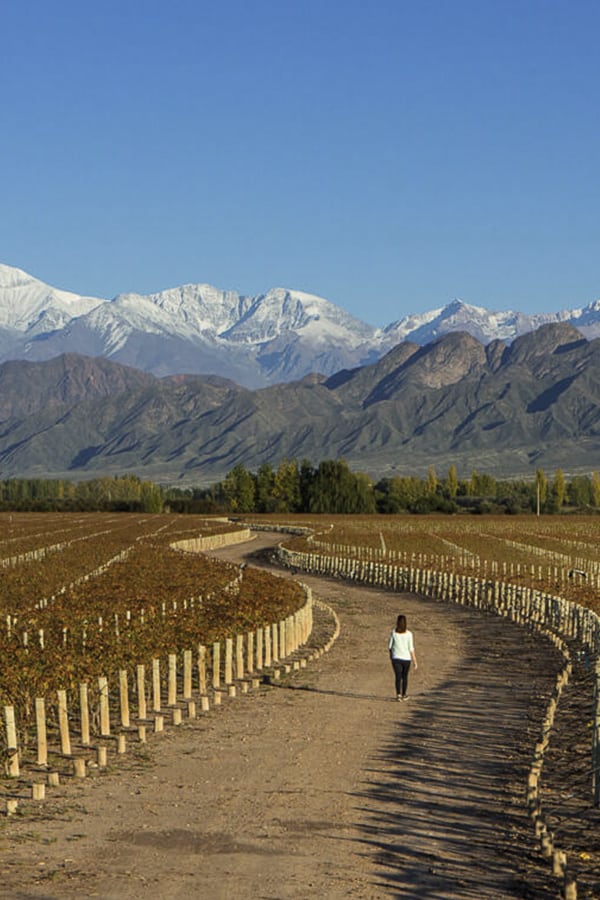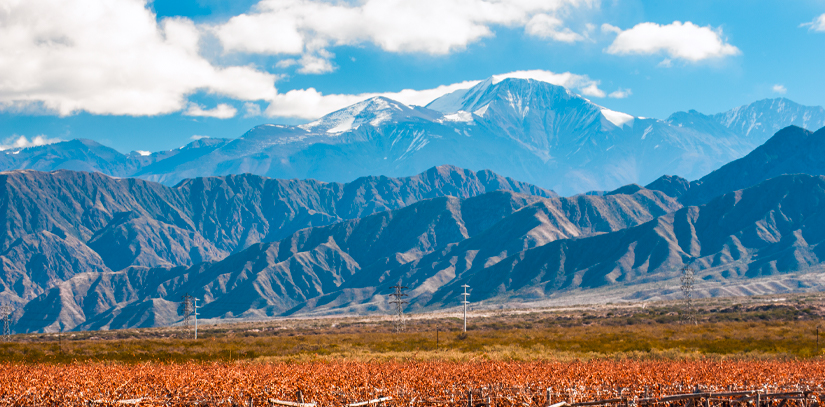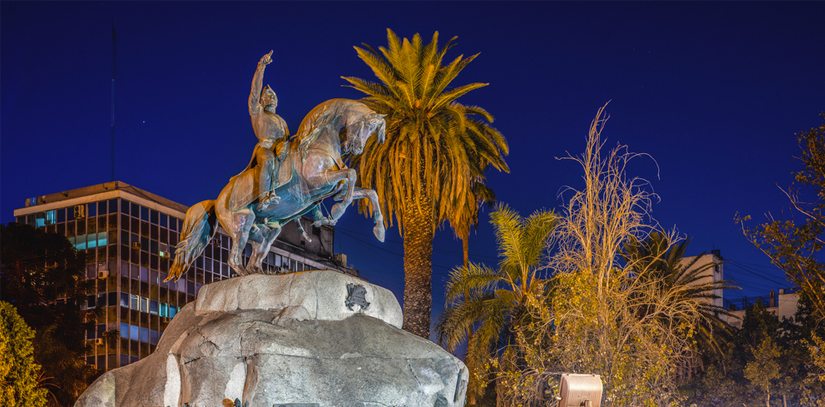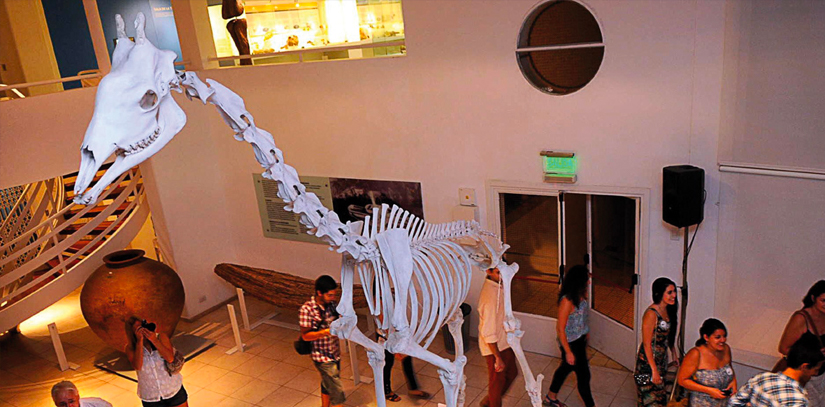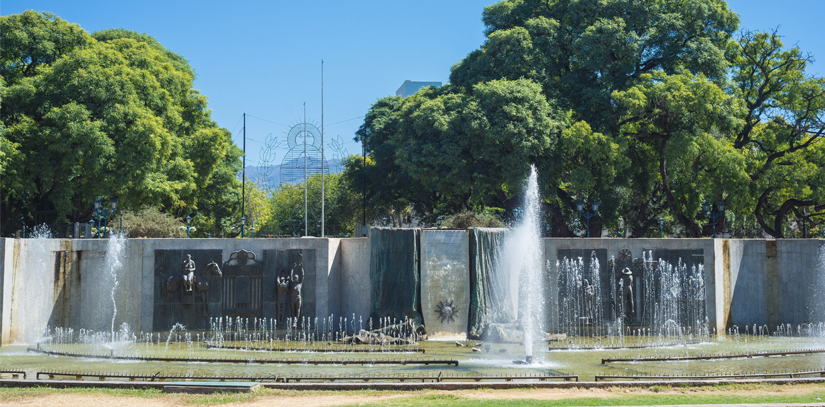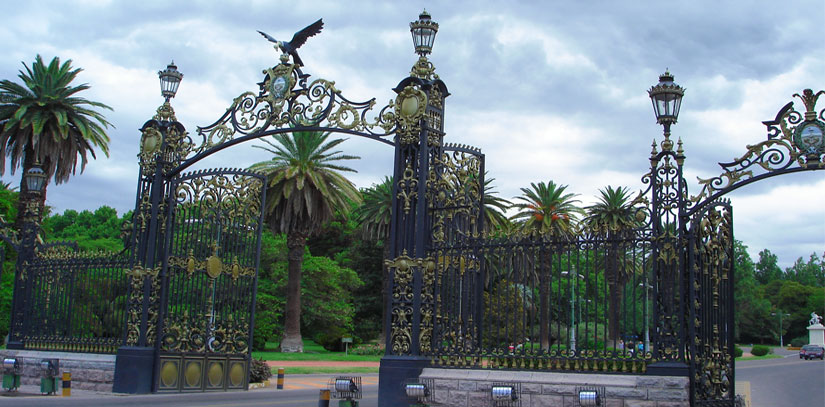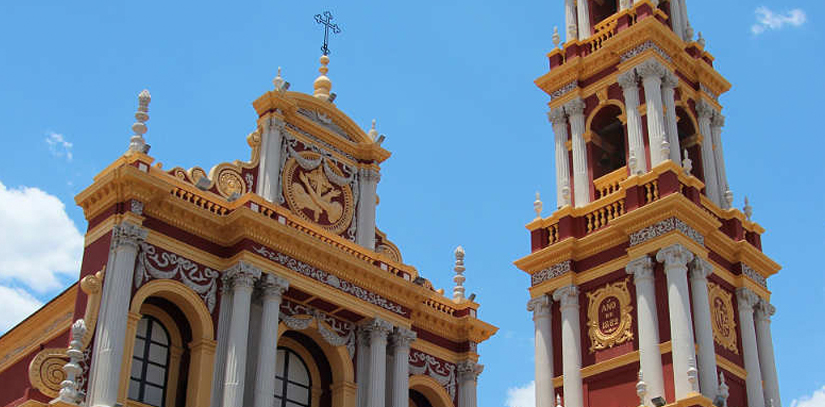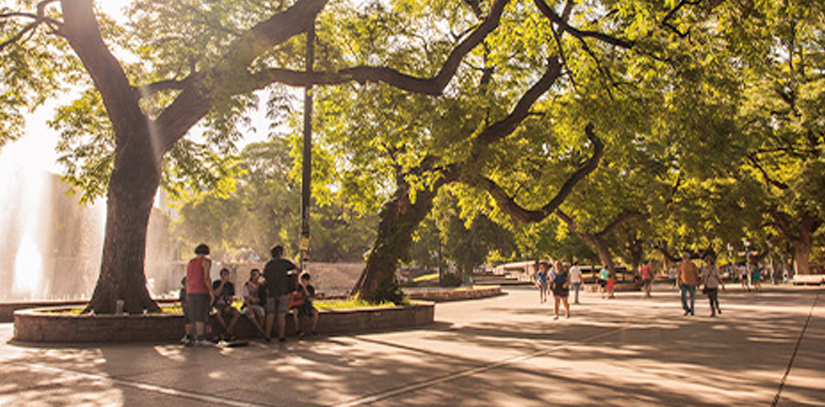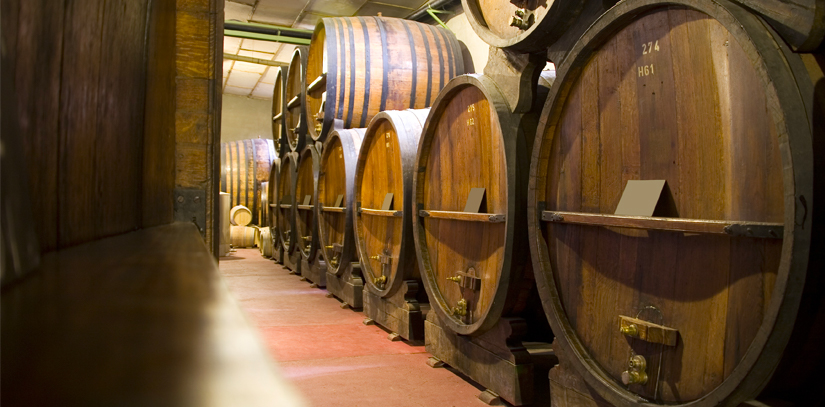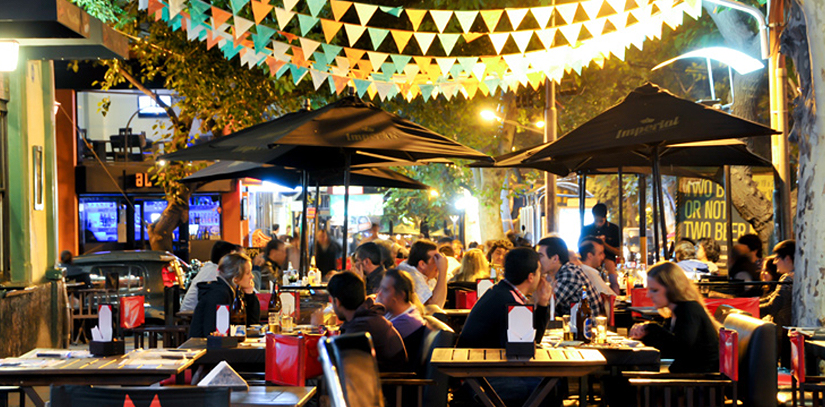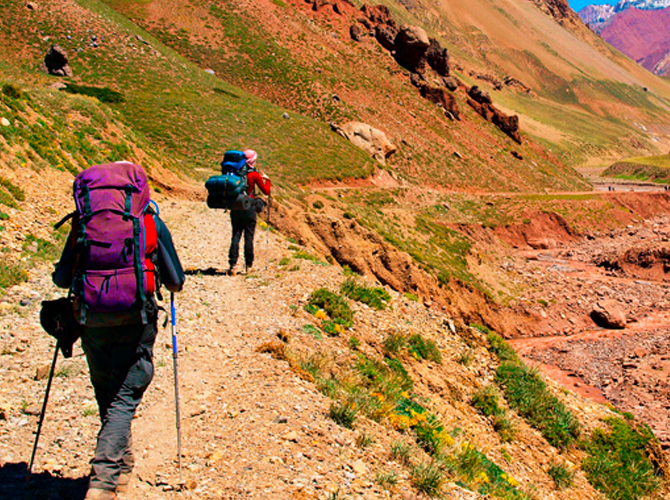Mendoza Food and Drink - Wine
The dry and sunny Mendoza region is ideal for cultivating grapes and producing delicious wine. It has now come to be known as the ‘wine capital’ of Argentina due to the fact that many world famous wineries are located in and around the city.
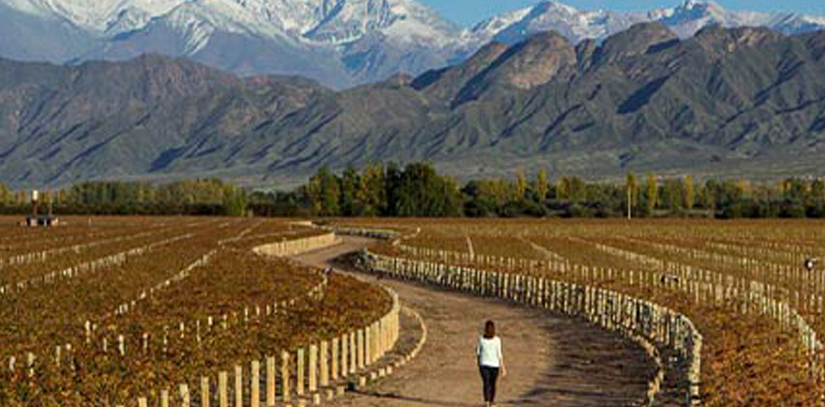
Traditionally the Mendocinian wine industry has been based on the pink skinned grape varieties of Cereza and Criolla Grande - a quarter of vineyard plantings are still composed with these types. However, their importance for winemaking has significantly declined with the import of stronger varieties. Malbec is now the most common grape on the vineyards followed by Tempranillo, Cabernet Sauvignon and Chardonnay. Each grape type gives its own distinctive qualities to the wine; from the deep ruby of cabernet to the smooth texture of the merlot to the character of the chardonnay. But for those looking for something uniquely Argentinean, travelers should opt for the malbec, a rich and tasty red wine that is becoming increasingly recognized across the globe. Although malbec is grown in other parts of the world it is extremely well suited to the Mendoza climate giving the malbec wine here a quality and depth that is unrivalled.
Mendoza Food and Drink - Bodegas
The best place to sample the local wine is in the very places that they are produced: “Bodegas” (or wineries). These are always friendly and welcoming to visitors and usually host a variety of interesting events centered on the culture and harvest of their wine and grapes. Visitors can always be assured of a tasting session with the house wine and a platter of sumptuous regional olives. The best time to visit is during the harvesting season in March and April.
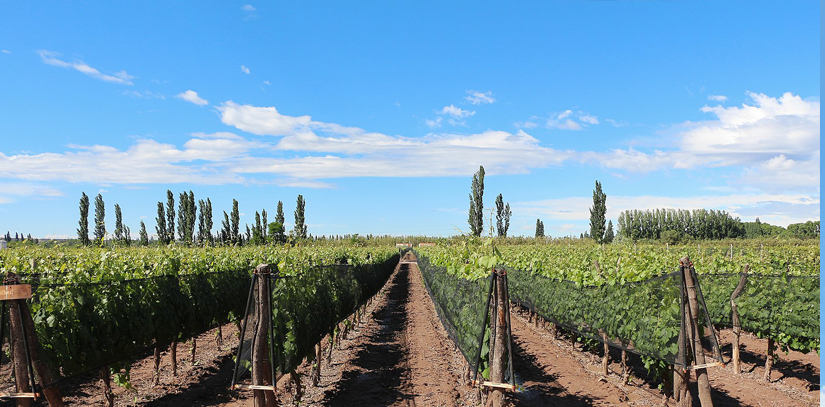
Travelers should at least take a couple of days to explore the vineyards in Mendoza but certainly there is enough on offer to devote a couple of weeks to this pleasure. The list of bodegas in and around the city reaches over 1,000: La Rural, Finca Flichman, Carina E, Tempus Alba, Viña el Cerno, López, Reyter, Tapaus, Tierras Altas, Bodega Familia Zuccardi, Dolium, Nieto Senetiner, Fabre Montmayou, Chandon, Norton, El Lagar de Carmelo Patti, Séptima, Renacer, Catena Zapata, Cavas de Weinert, Alta Vista, Lagarde, Tapiz, Viña Amalia, Familia Barberis, Luigi Bosca, Viniterra, Cava de Cano, Ruca Malen, or Hacienda del Plata are just a few of those worth a visit and a tour!
La Rural is one of the finest bodegas. 16km outside the city, it has a traditional and authentic atmosphere and a delightful Museo del Vino where the history and process of producing this popular drink can be explored. Visitors are also treated to a wine tasting session where the delicious wine produced on-site can be quaffed.
Another excellent wine experience can be found at the Catena Zapata. This vineyard is owned by Dr. Nicolas Catena, an economist from Columbia University who is widely given credit for bringing the attention of Argentinean wine to the world. Some of the most recognizable Argentinean wines are produced at his bodegas, and Catena Zapata is amongst the finest. The vineyard itself is also most striking; it is built in a pyramid shape styled like a Mayan Temple.
The Familia Zuccardi vineyard offers perhaps the most memorable wine tour in Mendoza. This is rounded off with a succulent asado lunch of which each course is complimented by a different Zuccardi blend; the perfect way to while away a lazy afternoon. The Zuyccardi family also hold an annual open day in which the different varieties of wine produced can be tasted. This is usually on the third Saturday in November.
Mendoza Food and Drink - Local Specialities
Mendoza, as everywhere in Argentina, has a rich and varied culinary tradition. Below are just a few of the local specialities.
Asado – cooked on the barbeque
Asado de tira or tira de asado – barbequed spare ribs.
Bife de chorizo - the prime steak cut, meatiest slice with the lowest fat proportion
Bife de lomo - tenderloin or filet steak.
Cantimpalo – a peppery sausage used in pizzas, empanadas, soups and stews.
Choripan – Chorizo (Sausage) and pan (bread), quite simply put a sausage sandwich, sold by street vendors, at football matches and at festivals.
Chimichurri – A most delicious Argentine sauce, usually blending together olive oil, wine vinegar, garlic, parsley, roasted capsicum: an ideal compliment to succulent Argentine meat.
Dulce de leche – a rich and creamy caramel-like spread used in Argentinean desserts, most famously the alfajor, which sandwiches dulce de leche between two soft biscuits.
Empanadas – pastries filled with a meat and veggie mix, very similar to Cornish pasties. Popular varieties are carne (beef), pollo (chicken).
Escabeche – a popular condiment made with olive oil, wine vinegar and herbs.
Fiambres – pre cooked cuts of meat served cold.
Locro – soup or stew dish served with hominy, often made with a mix of various ingredients, including vegetables, sausage and cow intestine, topped with scallions and garnished with paprika, cumin, and chilli pepper.
Medialunas – semi circular, or “Half-moon” pastries. Popular at breakfast with a fresh coffee.
Parilla – a barbeque or steakhouse.
Mendoza Social Calendar - Fiesta Nacional de la Vendimia (March)
On the first weekend of March there is a popular festival to mark the end of the grape harvest. Fiesta Nacional de la Vendimia is a somewhat riotous celebration of wine, winemaking and their importance to the local economy. This has become amongst the most important festivals in the country and is celebrated for several weeks surrounding the key festivities with traditional and cultural folk events in abundance.
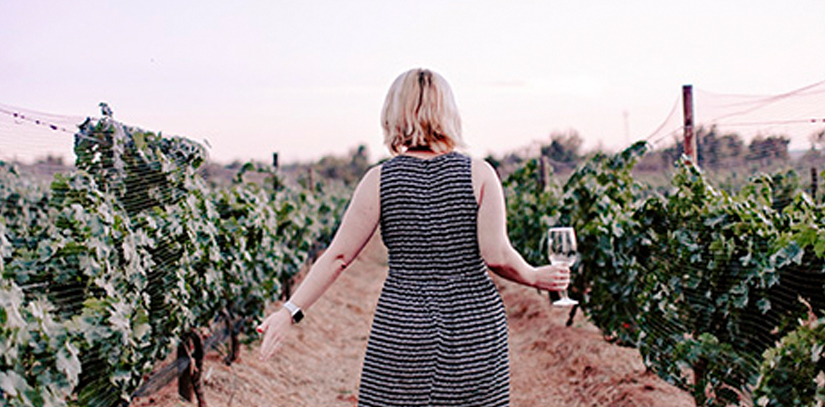
During the main event, dancers, performers and decorated floats engulf the Amphitheater in Parque San Martin and the key plazas and wineries across the city.
A Reina Nacional de la Vendimia (National Vendimia Queen) is selected from beauty queens who have been chosen from 17 surrounding districts; the beauty pageant remains an important element of many South American festivals.
The festival is rounded off with a vibrant firework display resembling the explosive merriments of this joyous and wine fuelled event. Those who want to attend should book in advance, as hotels and flights can be difficult to find at the last minute due to the high number of visitors that the festival attracts.

